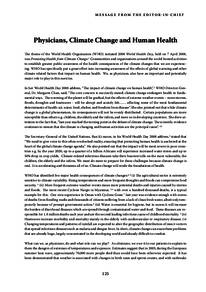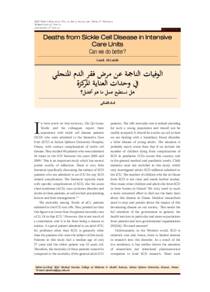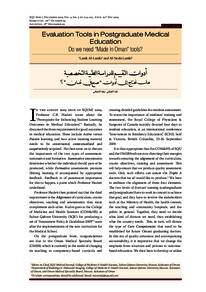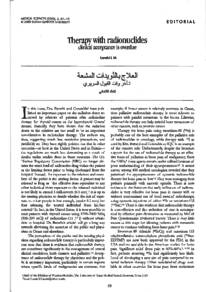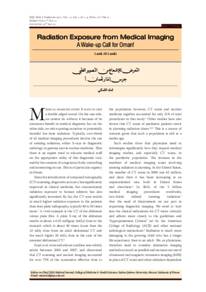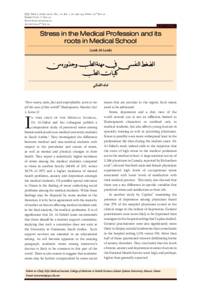Document
Plagiarism and other types of publication misconduct : a case for teaching publication ethics in medical schools.
Other titles
الانتحال وغيره من إساءات التصرف في النشر العلمي : قضية تستوجب تدريس أخلاقيات النشر في الكليات الطبية
Publisher
College of Medicine, Sultan Qaboos University.
Gregorian
2009-04
Language
English
English abstract
THE WORLD ASSOCIATION OF MEDICAL Editors (WAME) in its publication, Ethics Policies for Medical Journals, defines plagiarism as "the use of others' published and unpublished ideas or words (or other intellectual property) without attribution or permission, and presenting them as new and original rather than derived from an existing source. This applies whether the ideas or words are taken from abstracts, research grant applications, institutional review board applications, or unpublished or published manuscripts in any publication format (print or electronic)"1 The Office of Research Integrity (ORI) in the USA considers "plagiarism to include both the theft or misappropriation of intellectual property and the substantial unattributed textual copying of another's work". ORI goes on to explain, "The theft or misappropriation of intellectual property includes the unauthorized use of ideas or unique methods obtained by privileged communication, such as a grant or manuscript review."2 Plagiarism is the worst offence of all the various forms of publication misconduct. "In its worst form, it is as bad as any other scientific misconduct". The recent increase in the amount of plagiarism is partly due to the pressure that university faculty is under to "publish or perish". This mantra not only drives them to publish, but it also leads to an increased incidence of plagiarism and duplicate publications.
Arabic abstract
تعرف الجمعية العالمية للمحررين الطبيين (WAME) في منشورها ، سياسات أخلاقيات المجلات الطبية ، السرقة الأدبية على أنها "استخدام أفكار أو كلمات الآخرين المنشورة وغير المنشورة (أو غيرها من حقوق الملكية الفكرية) دون إسناد أو إذن ، وتقديمها على أنها جديدة وأصلي وليس مشتق من مصدر موجود. ينطبق هذا سواء كانت الأفكار أو الكلمات مأخوذة من الملخصات ، أو طلبات المنح البحثية ، أو تطبيقات مجلس المراجعة المؤسسية ، أو المخطوطات غير المنشورة أو المنشورة بأي تنسيق منشور (مطبوع أو إلكتروني) "1 يعتبر مكتب نزاهة البحث (ORI) في الولايات المتحدة الأمريكية" الانتحال ليشمل كلاً من السرقة أو التملك غير المشروع للملكية الفكرية والنسخ النصي الكبير غير المنسوب لعمل شخص آخر ". تمضي ORI لتشرح ، "تشمل سرقة الملكية الفكرية أو اختلاسها الاستخدام غير المصرح به للأفكار أو الأساليب الفريدة التي يتم الحصول عليها من خلال الاتصال المميز ، مثل المنحة أو مراجعة المخطوطة." 2 الانتحال هو أسوأ جريمة من بين جميع أشكال النشر المختلفة سوء السلوك. "في أسوأ أشكاله ، إنه سيء مثل أي سوء سلوك علمي آخر". تعود الزيادة الأخيرة في حجم الانتحال جزئيًا إلى الضغط الذي يتعرض له أعضاء هيئة التدريس بالجامعة من أجل "النشر أو الهلاك". لا يدفعهم هذا المانترا للنشر فحسب ، بل يؤدي أيضًا إلى زيادة حالات الانتحال والمنشورات المكررة.
Member of
